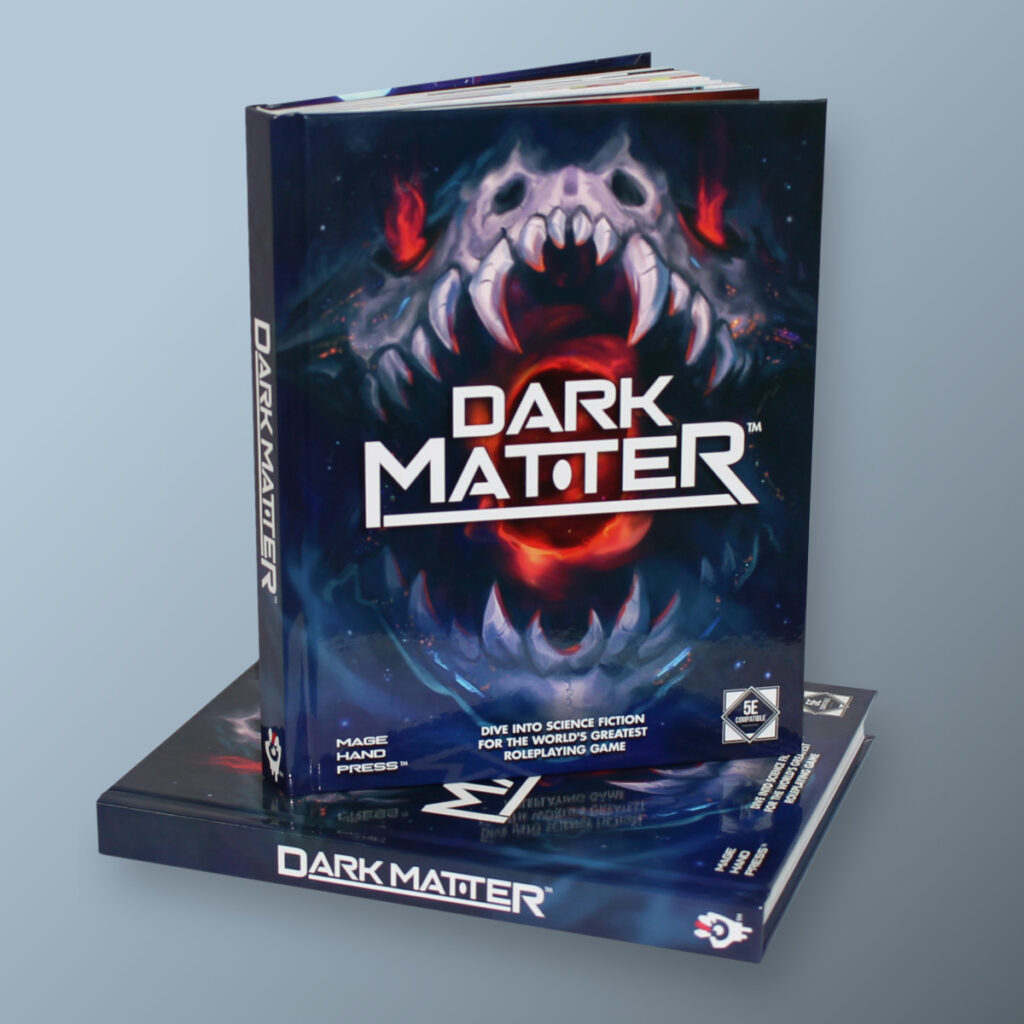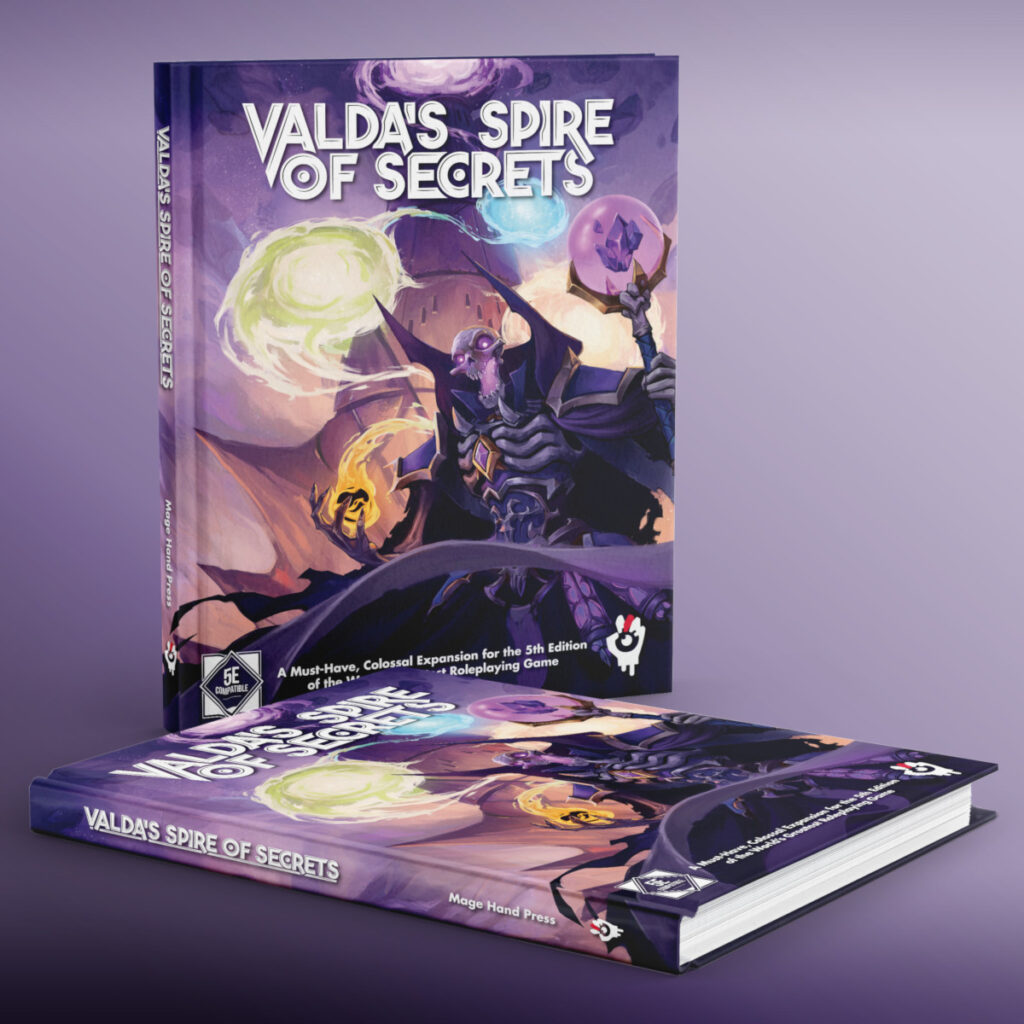Vestiges are remnants of powerful spirits residing in the nothingness outside of reality. Vestiges are born of dead gods and tragic heroes, but their forms, personalities, and motivations are shaped by the whims of remembrance.
In order to harbor a vestige, a binder must divide their very soul and offer part of it to the vestige for residence. As the vestige pushes its way into reality it influences its binder’s personality and usually warps their body in accordance with the vestige’s esoteric form. Skilled binders learn to break their soul into smaller and smaller pieces to bind greater and more numerous spirits, regardless of the consequences.
7th-Level Vestiges
Hammurabi, the Lawbringer
One of the first great kings of humankind, Hammurabi set forth mortal law on a stone obelisk. Today, his vestige grants binders the authority to judge others by the first laws and inflict their cruel punishments.
Legend. Mortals have always been judged by the whims of the gods when they passed onto the afterlife, but it was not until the early kings of mankind that mortals passed judgment on each other. Hammurabi, king of a long-forgotten province, beseeched the gods for laws that would solidify his rule with exacting authority. The gods granted his plea and delivered an obelisk inscribed with every conceivable crime and punishment to his kingdom.
These primeval gods believed in order above such petty qualms of good and evil. After all, they carved all of creation from sprawling chaos and struck a mathematical equilibrium; they did not take such balance for granted. As such, their laws were perfect counterbalances: an eye for an eye, a bone for a bone, a hand for an errant strike, and so on. Brutal as they were, the people of Hammurabi found them effective.
However, as Hammurabi would learn, no man is above this law. As all people could read the obelisk’s code, some came to their king with grievances enforced by the law. In recompense, Hammurabi lost his own eye, fingers from each hand, his teeth, and the hair from his head, and suffered many other punishments for his fleeting crimes as king. Even his vestige is maimed and broken, a symbol that truly fair punishment endures even after death.
Ideal. While bound to this vestige, you gain the following Ideal: “Eye for an Eye. I strive for absolute equity in all things, and will go to extremes to ensure fair recompense for all deeds. (Lawful)”
Hammurabi, The Lawbringer
7th-level vestige
Enduring Punishment
Whenever you deal damage to a creature, that creature can’t regain hit points until the start of your next turn.
Law of Retribution
When a creature you can see hits you with a melee weapon attack, you have advantage on the next attack roll you make against that creature before the end of your next turn.
Forbid
If a hostile creature you can see uses its action to attack or takes a legendary action or a lair action, you can use your reaction to intercede, causing the creature to lose the action.
Once you use this feature, you can’t use it again until you finish a long rest.
Trait: Maimed
While bound to Hammurabi, you are missing multiple fingers, several teeth, and an eye—all gouged out as recompense for past crimes. You are immune to the following conditions: blinded, deafened, exhaustion, paralyzed, poisoned, and stunned. If a creature targets you with an effect that would impose one of these conditions on you, you can use your reaction to cause that creature to be targeted by the effect instead.
Sariel, the Fell Angel
The first fallen angel, Sariel tried and failed to destroy the multiverse as a mercy to its inhabitants. As penance, he offers his binders his wings and his once-holy blade.
Legend. When the primeval gods spoke the Words of Creation, the world sputtered, cracked, and bled into existence. It wrenched itself and edged close to utter disaster, for it was built on a deeply imperfect plan.
Seeing the havoc of the multiverse firsthand, the archangel Sariel descended from the Upper Planes to Erebus and beseeched that she might unmake the world, so that it could be made again. Sariel struck the Stygian Seal with his blade, and the quarreling gods above took notice. Before Sariel could break the seal with a final blow, the gods halted him. In judgment for his betrayal, for attempting to destroy the multiverse itself, the gods cast Sariel down into Erebus, from which he might never escape.
Binders know the story of Sariel’s betrayal well, for it illustrates their deepest secret: the world’s flaws were crafted at the onset, and Erebus represents a destructive, merciful remedy, which might pave the way to a more perfect multiverse. The sign is nearly broken, which is why vestiges draw so near to the Material Plane.
However, Sariel’s vestige only regrets his actions, and offers his wings that he might go flightless as penance.
Personality Trait. While bound to this vestige, you gain the following personality trait: “I feel a melancholic regret for my mistakes; such sadness follows me everywhere I go.”
Sariel, The Fell Angel
7th-level vestige
Broken Halo
Whenever you fail a saving throw, roll a d6. On a 6, you succeed on the saving throw instead.
Flyby Attack
When you make a melee attack against a creature while flying, you don’t provoke opportunity attacks from that creature for the rest of the turn, whether you hit or not.
Judgment
When you hit a creature with a melee weapon attack, you can deal an additional 6d8 necrotic or radiant damage (your choice) to the target. Once you use this feature, you can’t use it again until you finish a short or long rest.
Trait: Angelic Wings
While bound to Sariel, you sprout broad, feathered wings from your back, granting you a flying speed of 60 feet.
8th-Level Vestiges
Carthin, the Runebreaker
In life, Carthin was a mage who forsook all arcana, except that which might be used to strike down the archmagi who betrayed him. He offers his binders a rebuke of magic, along with his unsettling eyes.
Legend. Carthin descended into the lair of Vortirrackt, the dimensional monster, alongside a band of a hundred other warriors. It was a deathtrap. The creature was as ferocious as it was cunning, and it had converted its accommodations—the tower of the arcane university—into an insidious dungeon. One by one, Carthin’s comrades fell to the tower’s perilous traps, bloodthirsty summoned monsters, and occasionally to Vortirrackt itself.
At last, Carthin and his remaining allies uncovered the artifacts they required and did the deed: expanding the dimensional rift from which the creature originated, until it swallowed Vortirrackt and the whole of the tower with it. Only Carthin emerged before the tower was destroyed.
From Vortirrackt in the dungeon, Carthin learned that he and his allies had been sent on a suicide mission; none were meant to survive. All of the death within the university was the fault of the reckless archmagi and their experiments; it would stand no longer.
Taking up the mantle of “Runebreaker,” Carthin swore off all magic, save that which might kill the archmagi, and embarked on a journey of vengeance. The Runebreaker left a trail of mage corpses in his wake as he hunted down the former headmasters of the university. Some histories paint this as a folk tale about the common man standing up to authority, others remember it as a horror story. In the end, his vestige cares only that he continues his endless inquisition, evidenced by his unflinching red stare that unravels magic itself.
Flaw. While bound to this vestige, you gain the following flaw: “I believe that those who wield magic are innately corrupted, and I will trust nothing they say or do.”
Carthin, The Runebreaker
8th-level vestige
Blade of the Inquisition
You can cast the magic weapon spell at will as a 4th-level spell, without expending a spell slot. Your concentration on the spell is broken if the weapon ever leaves your hand.
Spellcasting: Mage-Killer
While bound to Carthin, you can cast the following spells, without expending a spell slot or material components:
3/day each: counterspell, dispel magic
1/day each: antimagic field, true seeing
Casting antimagic field in this way doesn’t disable any of your vestige features, except for spellcasting and magic items. You regain all expended uses of these spells when you finish a long rest.
Trait: Dead Magic Eyes
While bound to Carthin, your eyes become vacant pits with two bright coals burning within them, granting you vision that can pierce arcana. You are always under the effects of the detect magic spell, which doesn’t require your concentration. Additionally, you can use your action to focus on a creature you can see within 30 feet of you. You can determine if that creature has cast a spell within the last 24 hours, and the spell’s school of magic, if any.
Döpple, the Archivist
An archivist of countless treasures from the Vaults of Venagoth, Döpple shares history’s greatest artifacts with his binders.
Legend. When the Arcane Archive burned, many of its surviving treasures, including tomes of ancient lore and magic items of boundless power, were transported thousands of miles away to the Vaults of Venagoth, where they rested in safety for centuries. In its prime, the Venagoth family was immensely rich and influential, and chose to amass their wealth in their ancestral Vaults, which were practically impregnable, built deep into a mountain, and secured with excessively potent wards. No thief ever successfully infiltrated the Vaults of Venagoth and made it out alive. But one archivist, Döpple, was freely permitted into the Vaults to organize and curate their vast collection.
Alas, the record of history is long and unforgiving. With the Venagoth’s waning influence came the ire of a barbarian warlord from the north, who campaigned south to burn cities, dethrone kings, and eventually sack the Venagoth estates. Knowing their treasure to be too momentous to lose, the Venagoth patron commanded Döpple to seal himself within the Vaults until the military could drive back the savage horde.
But rescue never came. The Archivist lived out his final days, perhaps his final decades, surrounded by the amassed artifacts of millennia. The Vaults of Venagoth were lost to history, but the search for their location always lingers on the entombed Archivist, organizing the collection until his death. Ironically, Döpple’s vestige is exceedingly generous where history is not: he is represented by a learned, bespectacled man, standing at the Vaults’ door, offering his treasures to those who understand their significance.
Personality Trait. While bound to this vestige, you gain the following personality trait: “I look after the fine details of all my possessions, keeping them organized and in excellent repair.”
Döpple, The Archivist
8th-level vestige
Minor Relic
When you bind Döpple, a magic item appears in your possession. The item vanishes when you are no longer bound to Döpple.
The item is your choice of the following: 2 beads of force, a necklace of fireballs (2 beads), an oil of etherealness, a potion of gaseous form, or a potion of invisibility.
Relic
When you bind Döpple, a magic item appears in your possession. You are automatically attuned to it, if it requires attunement, and it doesn’t count against the number of items you have attuned. Moreover, no other creature can attune to the item or, if the item is a weapon, use it to make an attack. The item vanishes when you are no longer bound to Döpple.
The item is your choice of the following: a carpet of flying, a cloak of the bat, a flame tongue, gauntlets of ogre power, an instant fortress, a ring of regeneration, a ring of telekinesis, a sun blade, or a wand of wonder.
Trait: Spectacles
As a final parting gift, Döpple offers his binders his very spectacles. While wearing the spectacles, if you make an Intelligence (Arcana), Intelligence (History), Intelligence (Nature), or Intelligence (Religion) check, you can treat the result as a 10, or your binder level plus your Charisma modifier, whichever is higher.
9th-Level Vestiges
Erebus, the Shadow Interminable
Binders alone remember the esoteric legend of Erebus, the wellspring of all vestiges, the one being all gods fear.
Legend. Before the primeval gods laid the universe’s foundations, a groundwork upon which they could sculpt the antediluvian Chaos, they devised a failsafe to ensure their success. Before all else, they beckoned Erebus, a being of unmaking from beyond the veil of reality, to unravel and destroy their creations. For the gods, in their wisdom, realized that not even they could forge a perfect world on the first try—indeed, countless universes were created and discarded before the gods settled for the current one, with its particular compromises and imperfections.
Erebus was the tool for erasure, made to consume flawed universes and return them to the Chaos so that the gods might try again.
Eventually, it seems the primeval gods grew weary of fruitless creation, for then they committed the First Sin: suffering our universe to live through its painful gestation. Cataclysmic disasters swept the world in its infancy, but, perhaps by chance, it persisted and settled into what it is now: petty, brutish, and broken. Our universe’s denizens are all sentenced to die from the moment of their births, magic is fleeting and volatile, and the fabric of the universe itself is surely unraveling, imperceptibly and steadily to a pathetic end.
To safeguard their flawed creation, the gods bound Erebus with the Stygian Seal and scattered the Words of Creation. Most speculate that Erebus lies deep within the Void, but history tells a more complex story: in ancient languages, the word Erebus simply means Darkness, and is used both as the name of the entity and the Void itself. This implies either the ancients saw no reason to distinguish between the two, or simply believed they were one and the same. Fittingly, Erebus does not speak to this; her vestige is a howling abyss, upon which all of creation is perched, and from which nothing escapes.
Flaw. While bound to this vestige, you gain the following flaw: “I do not speak.”
Erebus, The Shadow Interminable
9th-level vestige
Obliviate
At your touch, you unmake. As an action, you can touch a target, which can be a creature or an object. If the target is a creature, it must make a Constitution saving throw. On a failed save, or if the target is an object, it takes 10d10 + 50 necrotic damage, or half as much damage on a successful save. If this damage reduces the target to 0 hit points, it is totally unmade. An unmade creature and everything it is wearing or carrying, except for magic items, is completely annihilated, leaving behind nothing, not even dust. The creature can be restored to life only by means of a true resurrection or a wish spell. Once you use this feature, you can’t do so again until you finish a long rest.
Trait: Vestigial
While bound to Erebus, you are divorced from reality, much like vestiges themselves, causing you to appear hazy and indistinct, as your form is stretched between the Material Plane and the Void. You have resistance to all damage. Additionally, you can move through other creatures and objects as if they were difficult terrain. You take 4d10 force damage if you end your turn inside an object, as you are ejected into the nearest unoccupied space.
Qadir, the Damned Djinn
An ill-fated genie that abandoned the one who summoned him, Qadir offers his binders a lone wish before abandoning them as well.
Legend. For centuries, an unremarkable lamp sat amongst piles of gold in a forgotten treasure hoard. Then one day, Dra’wer, twin brother of legendary thief K’Sir, happened upon the lamp and rubbed its side. The noble genie Qadir emerged in a swirling cloud of lightning and wind and offered his rescuer three wishes in exchange for his freedom from the lamp.
First, Dra’wer wished to become an all-powerful sultan. In a flash, it was so. Then, Dra’wer wished for an army of soldiers, a million men strong, to spread bloodshed and conquest wherever he turned his gaze. In an instant, an army of terracotta soldiers arose at his side. Finally, Dra’wer wished for immortality, so that he could rule the world forever. This wish, however, was too great for Qadir. Even if it were not, the djinn could see that Dra’wer had the makings of a petty despot that would cause untold suffering. So Qadir reverted his wishes and banished Dra’wer to a forsaken desert.
When K’Sir learned of this, he sought out the lamp himself. Again, bound by the magic of the lamp, Qadir offered three wishes to his discoverer, which K’Sir happily accepted: his first wish would be to destroy the genie’s mind, his second to destroy his body, and his final wish to destroy his soul. In a whirlwind of deadly magic, Qadir was obliterated. He lives on only as a vestige, a cautionary tale that you should measure your promises and honor your vows, no matter the cost.
Flaw. While bound to this vestige, you gain the following flaw: “I must honor my promises, no matter what consequences they might bring.”
Qadir, The Damned Djinn
9th-level vestige
Fatal Wish
While bound to Qadir, you can cast the wish spell, without expending a spell slot, to duplicate any other spell of 8th level or lower. Once you cast the spell in this way, Qadir is expelled and is replaced by a vestige of your choice of 3rd level or lower. You can’t rebind Qadir until you finish a long rest.
Trait: Djinn Aspect
When you bind to Qadir, your skin tints to a bluish hue, and you constantly float a few inches off the ground on a layer of smoke. You ignore the effects of difficult terrain, your speed increases by 10 feet, and you can walk across fluid surfaces, such as water and quicksand.





